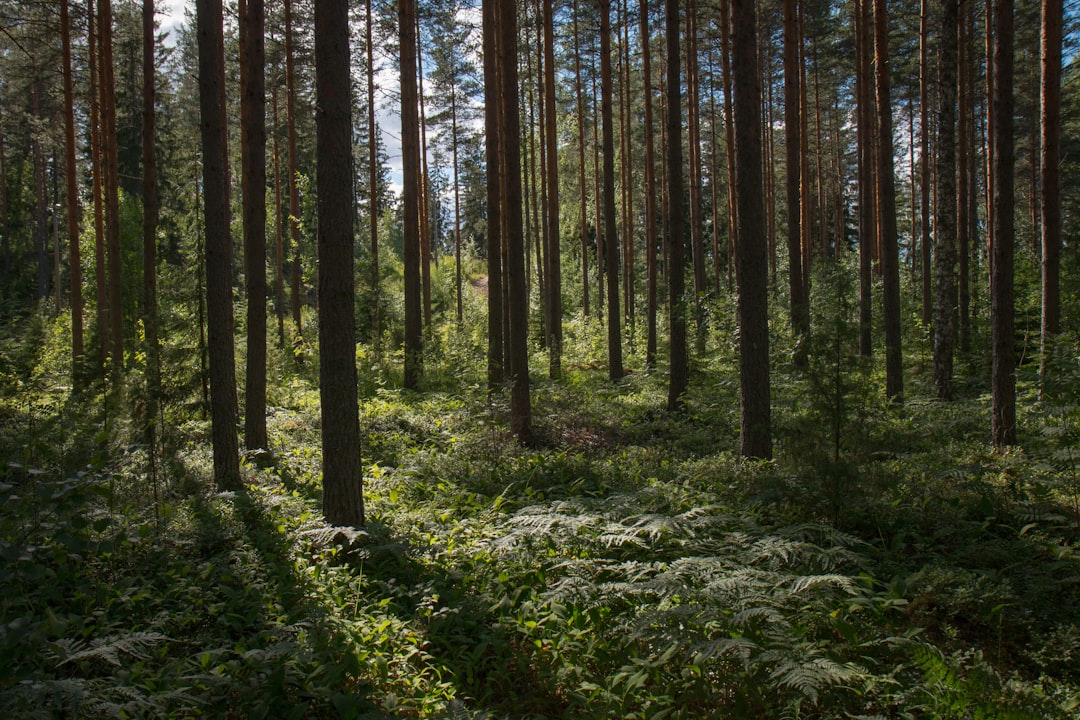Forestry Scientist Kaipūtaiao Ngahere
Forestry scientists research forest growth, wood processing, conservation and different types of trees, and how these can be used.
Forestry scientists may do some or all of the following:
- measure and analyse tree and forest growth
- develop new timber products or forestry technology
- investigate new species of tree that may be of commercial interest, and develop ways to breed them
- investigate damage to trees caused by diseases or animals
- study the impact of forestry on communities, and the impact of communities on forests
- study parts of the forestry industry such as forest product transport, or wood and paper product export
- provide technical advice on issues affecting forestry such as effects of climate change on tree health
- supervise technical and research staff
- write and publish reports on research findings.
At technician level, the main tasks are to help scientists prepare and carry out a range of experiments and tests.
Physical Requirements
Forest scientists need to be reasonably fit and healthy as they may walk long distances when doing fieldwork.
Useful Experience
Useful experience for forestry scientists includes:
- summer placements working as a technician while studying for a Master's degree
- volunteer work in ecology and conservation.
Experience driving four-wheel-drive and all-terrain vehicles may be useful when in the field.
Personal Qualities
Forestry scientists need to be:
- good at planning and organising
- skilled at writing reports and publications
- good at maths
- adaptable
- enquiring and observant
- open-minded and hard-working
- detail focused
- patient and methodical, as some research may take a long time.
Skills
Forestry scientists need to have:
- knowledge of environmental issues
- knowledge of current forestry research and equipment
- research skills, and skill in analysing and interpreting research results
- practical skills for performing experiments and operating scientific equipment.
Conditions
Forestry scientists:
- usually work regular business hours, but may work long hours or weekends to carry out fieldwork
- work in laboratories, offices and forests
- work in all weather conditions when doing fieldwork
- travel locally to forest sites.
Subject Recommendations
NCEA Level 3 is required to enter tertiary training. Agriculture and horticulture, maths, biology, and chemistry are preferred. English and economics are useful.
Related Courses
Forestry Scientists can earn around $55K-$98K per year.
Pay for forestry scientists at research institutions
- Forestry scientists with a Bachelor's degree usually earn between $55,000 and $75,000 a year.
- Those with postgraduate degrees usually earn between $56,000 and $98,000.
- Those with several years' experience and increased responsibility may earn between $110,000 and $150,000. However, only a small number of forestry scientists earn at this level.
Pay for forestry scientists at universities
- Lecturers/postdoctoral teaching fellows usually earn between $76,000 and $93,000 a year.
- Senior lecturers usually earn between $98,000 and $111,000.
- Associate professors usually earn between $127,000 and $137,000.
- Professors usually earn between $146,000 and $183,000.
Sources: Scion, Landcare Research, University of Canterbury, 2020.
Forestry scientists with Bachelor's degrees typically start as technicians, sometimes progressing into research scientist roles after getting a Master's degree or PhD in the relevant science area.
Forestry scientists with PhDs can apply for postdoctoral fellowships at research organisations or universities. It may take two or three postdoctoral fellowships to secure a permanent scientist or lecturer position.
After several years' experience, scientists can progress into senior research scientist, team leader or managerial roles.
Forestry scientists may specialise in different fields such as:
- biotechnology (developing products, such as plastics, from renewable fibres)
- ecosystems and climate (looking at human and climate influences on forest health)
- forest technology (assessing how new technology could make forest management more efficient)
- wood processing
- wood quality.
Years Of Training
3-4 years of training required.To become a forestry scientist you need to have a degree in forestry science or engineering, or a related subject such as molecular biology, or plant physiology and genetics. Employers increasingly prefer you to also have a postgraduate qualification such as a Masters in science or engineering, majoring in forestry science.
At technician level, a Bachelor's degree in a related science subject, such as horticultural science, is the minimum entry requirement.

 Marlborough Boys’ College
Marlborough Boys’ College